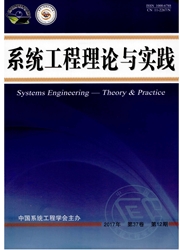

 中文摘要:
中文摘要:
本文针对供需双方的产能矛盾问题,研究了在需求不确定的情况下,制造商如何通过有效的机制设计激励供应商扩大产能投资.在机制设计中,制造商决定提供给供应商的契约参数,供应商则需要对最佳的产能投资水平进行决策.本文以批发价格契约情况为比较基准,以集中式决策情况为系统协调的标杆,分别从收益的角度和产能的角度,设计了收益共享契约和补偿契约两种激励机制.模型研究表明:补偿契约可以实现系统最优的产能投资水平,而收益共享契约却没有达到协调的效果.接下来文章进一步分析了收益共享契约不能协调的原因,在此基础上对原有的契约进行改进,并论证了改进后的收益共享契约能够刺激供应商扩大产能投资,实现供应链协调.
 英文摘要:
英文摘要:
This paper studies how a manufacturer motivates its supplier to effectively expand their ca- pacity investment under demand uncertainty, targeting at the conflict of capacity investment between the manufacturer and the supplier. In our model, the manufacturer determines contract parameters, whereas the supplier decides the magnitude of capacity investment. We consider the centralized decision as a benchmark and the wholesale price contract as a basis for comparison. Then we design two incentive mechanisms, i.e., revenue sharing and penalty, from the perspective of revenue and capacity, respectively. The study indicates that the penalty contract brings the optimal level of capacity investment, and that the revenue sharing contract fails to coordinate the supply chain. We further analyze the reason why the revenue sharing contract does not coordinate the supply chain. Finally, we design a modified contract of revenue sharing, and demonstrate that the modified contract could motivate suppliers to build a higher capacity and achieve coordination.
 同期刊论文项目
同期刊论文项目
 同项目期刊论文
同项目期刊论文
 期刊信息
期刊信息
